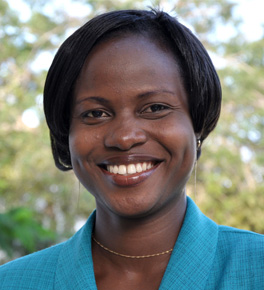OUR FELLOWS

OUR FELLOWS
Mercy Anjorin, a recent graduate in public health, is concerned about malnutrition in Nigeria. “In resourcepoor environments across the globe, low-quality, monotonous diets are the norm, and the risk for micronutrient deficiencies is high,” she says. “Women of reproductive age are among those most likely to suffer deficiencies.”
Anjorin has been working at Food Basket Foundation International for the past two years. She is researching how to increase the use of legumes such as soybeans, pigeon peas, and bambara groundnuts. “Lots of vegetables and legumes are very rich in nutrients, but we concentrate on so few of them,” Anjorin explains. “Soybean, for example, is cheap, readily available all over Nigeria, and can be made into many products like soy milk and tofu.” The rate of consumption of legumes has gradually reduced, especially in southwestern Nigeria, and most of these products are fast disappearing from the market.
In resourcepoor environments across the globe, low-quality, monotonous diets are the norm, and the risk for micronutrient deficiencies is high,” she says. “Women of reproductive age are among those most likely to suffer deficiencies.
Field of Research
Improving food and dietary diversity through determination of less laborious food-processing methods, focusing on legumes in Nigeria.
